Table of Contents
Introduction
You are what you eat—but did you know your mood is too? That’s right. Science is proving more and more that what we put on our plates affects our waistlines. It also affects our minds. Our brains and bodies are intricately connected. The fuel we give ourselves has a powerful impact on how we think and feel. Ever felt foggy or irritable after too much sugar? Or unusually happy after a wholesome meal? That’s not a coincidence—it’s chemistry.
Modern research has been diving deep into the gut-brain connection. It explores the role of neurotransmitters. Researchers also examine how essential nutrients influence mental well-being. It turns out, certain foods contain compounds that can elevate your mood, ease anxiety, and even help fight depression. And no, we’re not just talking about comfort foods like cookies or ice cream (though dark chocolate makes a surprise appearance!).
This article is your guide to 9 powerful, healthy foods that naturally lift your mood. These are everyday items you can find in your kitchen or local grocery store—no magic potions, just natural goodness. Ready to eat your way to a better day?Let’s dig in.
1. Dark Chocolate
Let’s start with the good news—chocolate really does make you happy. But before you go grabbing that sugar-loaded candy bar, let’s be specific. It’s dark chocolate, ideally 70% cocoa or higher, that brings the mood-lifting magic.
What Makes Dark Chocolate So Special?
Dark chocolate contains several compounds that enhance mood, including:
- Caffeine – It gives you a mild energy boost.
- Theobromine – Similar to caffeine, this stimulates the nervous system and boosts energy and focus.
- Phenylethylamine (PEA) – Known as the “love drug”, this chemical promotes the release of endorphins, the body’s natural feel-good chemicals.
- Flavonoids – These powerful antioxidants improve blood flow to the brain, reduce inflammation, and protect brain cells.
Science-Backed Happiness
A study published in the Journal of Affective Disorders found significant results. People who consumed dark chocolate regularly had 70% lower odds of experiencing depressive symptoms. This is compared to those who didn’t. That’s a significant psychological perk!
How to Enjoy It
The key is moderation—about 1 to 1.5 ounces (roughly 30–40g) per day. You can enjoy it as a mid-afternoon snack. Melt it into oatmeal. Shave it over yogurt for a double dose of happy.

2. Fatty Fish (Salmon, Sardines, Mackerel)
Your brain is nearly 60% fat, and it thrives on healthy fats like omega-3s. Fatty fish are one of the richest sources of these essential fatty acids. They play a vital role in brain structure and function.
Omega-3s: The Brain’s Best Friend
Fatty fish are high in EPA and DHA. These are two types of omega-3s. They are directly linked to reducing inflammation and supporting neurotransmitter function. These fats help your brain communicate more efficiently and reduce the likelihood of mental health issues like depression.
According to a review in Translational Psychiatry, omega-3 supplementation can reduce symptoms of major depressive disorder. This is especially true for people with low baseline levels of EPA and DHA.
Vitamin D Bonus
Fish like salmon are also excellent sources of vitamin D, another critical nutrient for mood regulation. Low levels of vitamin D have been linked with seasonal affective disorder (SAD) and overall lower mood.
Simple Ways to Add Fatty Fish
- Grill salmon and serve it with leafy greens.
- Add canned sardines or mackerel to salads or toast.
- Make a creamy tuna salad with Greek yogurt and herbs.
Aim for two servings of fatty fish per week for optimal benefits.
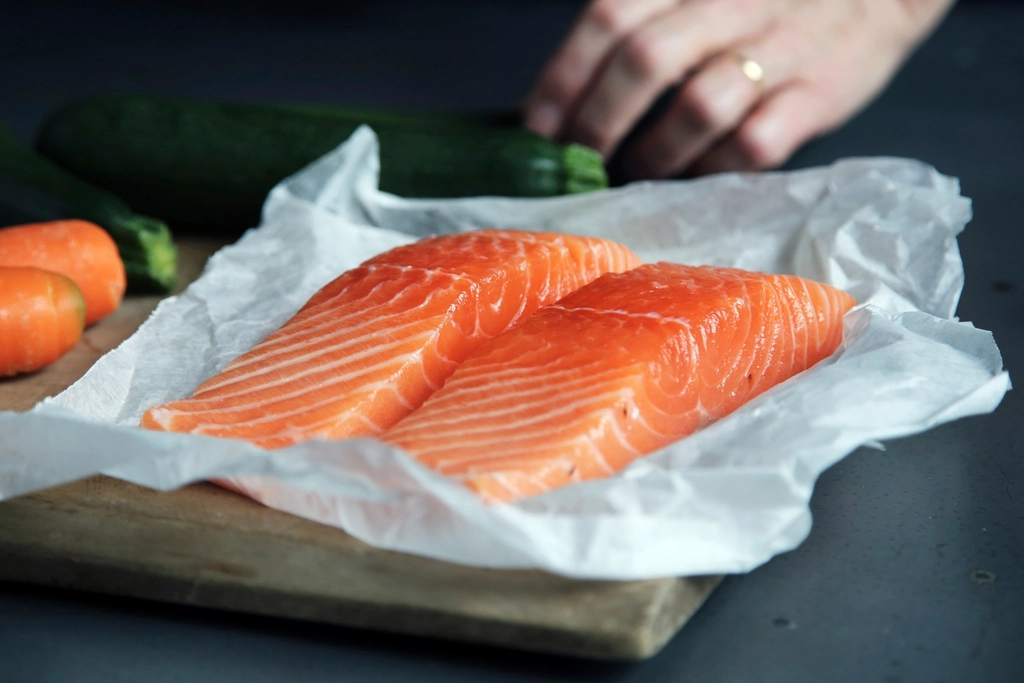
3. Bananas
They’re cheap, portable, and they come in their own wrapper—bananas are a fantastic mood-boosting snack you can take anywhere.
Mood-Boosting Nutrients
Bananas are a top source of:
- Vitamin B6 – This vitamin helps your body produce dopamine and serotonin, two key neurotransmitters involved in mood regulation.
- Natural sugars and fiber – They provide a steady energy release without blood sugar spikes and crashes.
- Magnesium – A deficiency in this mineral is linked with increased anxiety and depression.
Bananas also contain tryptophan, an amino acid your body uses to produce serotonin—often called the “happy hormone.”
Perfect as a Pre-Workout Snack or Breakfast Booster
Try pairing bananas with peanut butter, blending them into smoothies, or slicing them onto whole-grain toast. Not only are they delicious, but they help stabilize your energy and mood all day long.
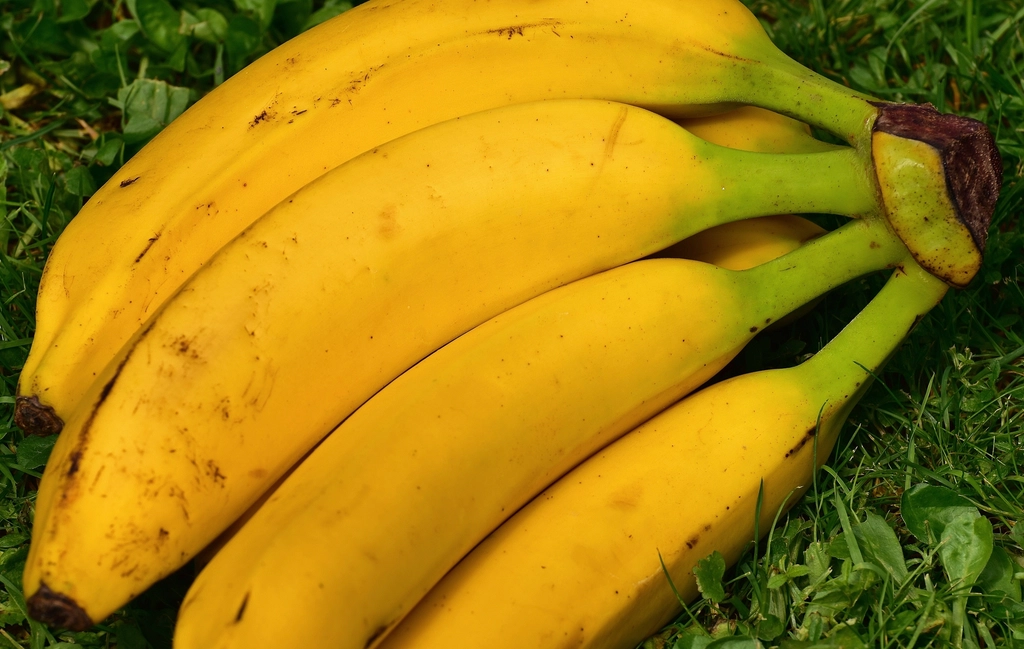
4. Berries (Blueberries, Strawberries, etc.)
Bright, sweet, and packed with nutrition—berries aren’t just pretty on your plate; they’re powerhouses when it comes to brain health.
High in Antioxidants
Berries are rich in anthocyanins, the colorful plant pigments that have been linked to reduced symptoms of depression. Antioxidants like these reduce oxidative stress, which has been associated with a variety of mental health disorders.
In one study published in Nutrients, regular berry consumption was associated with improved cognitive function and lower rates of depression.
Low in Sugar, Big on Flavor
Unlike many other sweet treats, berries offer a low-glycemic alternative that won’t cause energy crashes. Plus, they support gut health, which plays a key role in mental wellness.
Easy Ways to Eat More Berries
- Add a handful to oatmeal or cereal.
- Mix them into yogurt or cottage cheese.
- Blend them into smoothies with leafy greens and almond milk.
Berries are especially good frozen—they keep their nutrients and are budget-friendly year-round.
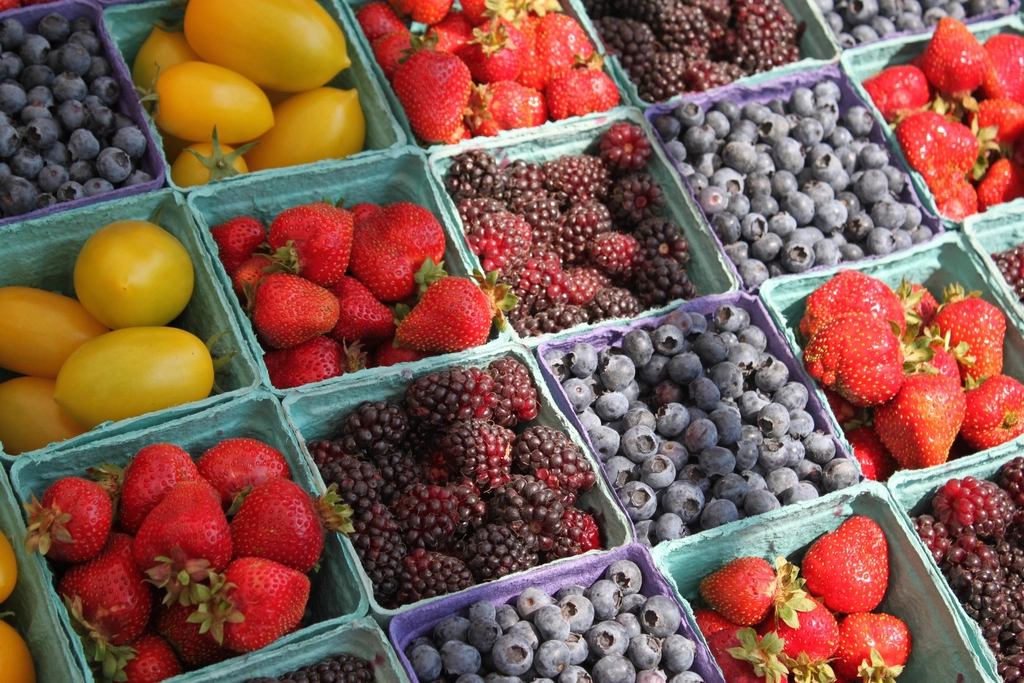
5. Fermented Foods (Yogurt, Kimchi, Sauerkraut)
Fermented foods are the unsung heroes of mental health. They support the gut microbiome—your internal army of bacteria that plays a direct role in brain function.
The Gut-Brain Axis
Your gut and brain are in constant communication through a system known as the gut-brain axis. When your gut is thriving, your brain feels it. Fermented foods are full of probiotics, the good bacteria that support digestion, immunity, and yes—mood.
According to the Psychiatric Clinics of North America, people who consume more probiotics experience less anxiety. They have better mood stability. Probiotics even enhance cognitive performance.
Examples of Fermented Mood-Boosters
- Yogurt with live cultures
- Kimchi, a spicy Korean fermented cabbage
- Sauerkraut, the tangy German classic
- Kefir, a probiotic-rich fermented milk drink
- Miso, used in soups and sauces
Tips for Getting the Most Benefit
Look for products labeled “live and active cultures,” and try to consume fermented foods daily for best results.

6. Oats
Start your morning with oats, and you might just start your day on a brighter note. Oats are one of the best mood-friendly carbohydrates you can have—simple, satisfying, and oh-so nourishing.
Why Oats Make You Feel Good
Carbohydrates help your brain absorb tryptophan, the amino acid used to create serotonin. But not all carbs are equal. Oats are slow-digesting complex carbohydrates. They give you a steady energy release. This can help keep mood swings at bay.
They’re also a source of:
- Iron – Iron deficiency can lead to fatigue and low mood.
- Magnesium – Calms the nervous system.
- B-vitamins – Support energy production and brain function.
A bowl of oatmeal can help you feel calm and clear-headed. It also energizes you. You won’t experience the sugar crash you’d get from sugary cereals or pastries.
Get Creative with Your Oats
- Cook them with milk and cinnamon, then top with berries and a dollop of Greek yogurt.
- Make overnight oats with chia seeds, almond milk, and banana.
- Bake them into muffins or blend them into smoothies.
Oats are budget-friendly, easy to prepare, and endlessly versatile. They’re comfort food with a purpose.
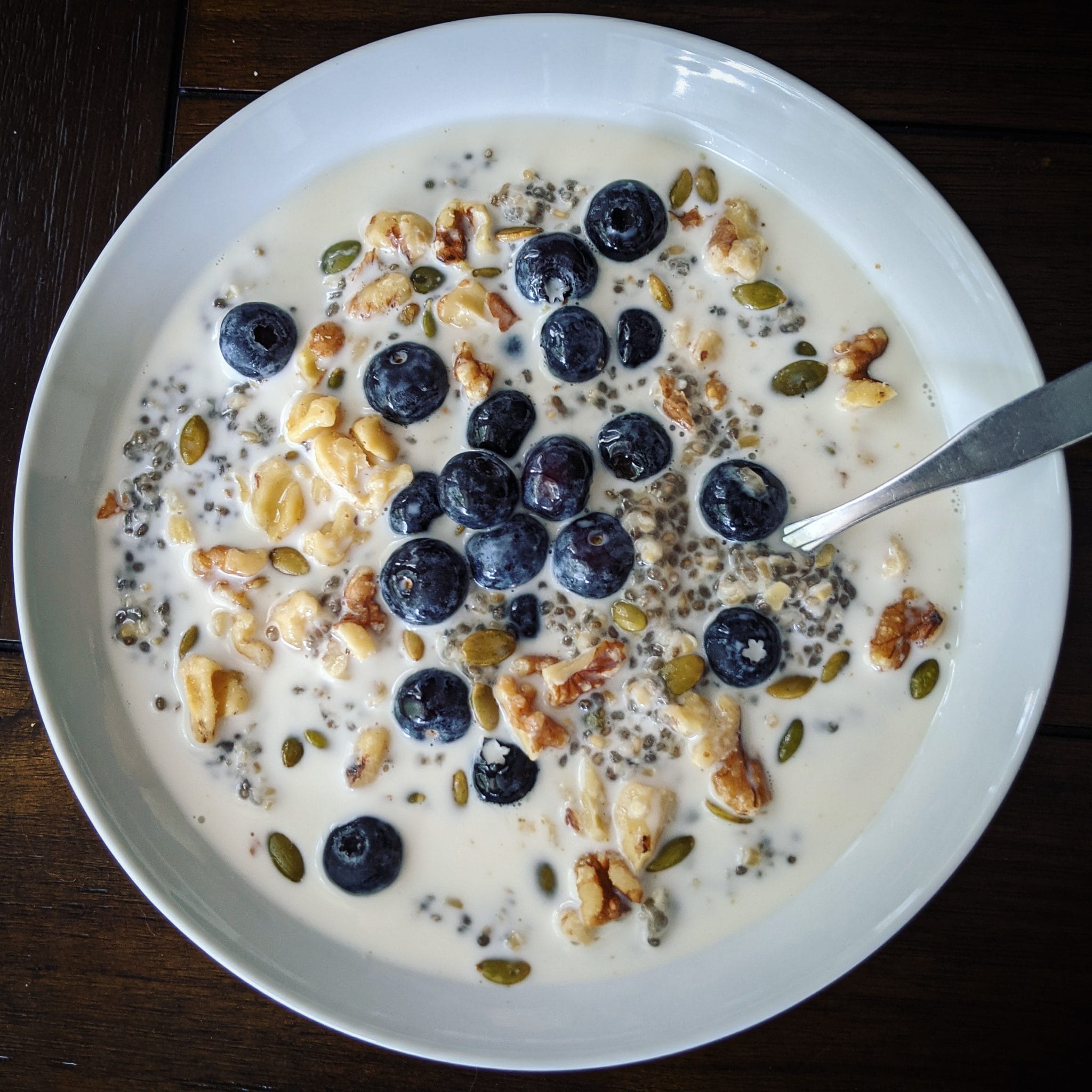
7. Nuts and Seeds (Almonds, Walnuts, Flaxseeds)
Think of nuts and seeds as little mood-boosting packages of nutrition. A small handful can pack a punch when it comes to improving brain health and emotional well-being.
Nutrient Powerhouses
Nuts and seeds are loaded with:
- Healthy fats (omega-3 and omega-6) – Essential for brain cell function and mood regulation.
- Magnesium – Helps relax muscles, ease anxiety, and promote better sleep.
- Tryptophan – Like in turkey, this amino acid helps produce serotonin.
- Vitamin E – Protects brain cells from oxidative damage.
Walnuts, in particular, are one of the only nuts that contain significant levels of plant-based omega-3s. Almonds are rich in B2 and magnesium, while flaxseeds offer fiber, lignans, and alpha-linolenic acid (ALA), another form of omega-3.
Smart Ways to Snack
- Toss almonds or sunflower seeds into salads.
- Blend walnuts into smoothies or sprinkle them on oatmeal.
- Mix flaxseed into yogurt, overnight oats, or baking recipes.
Just be mindful of portion sizes—nuts and seeds are calorie-dense, so a small handful (about 1 oz or 28g) per day is ideal.
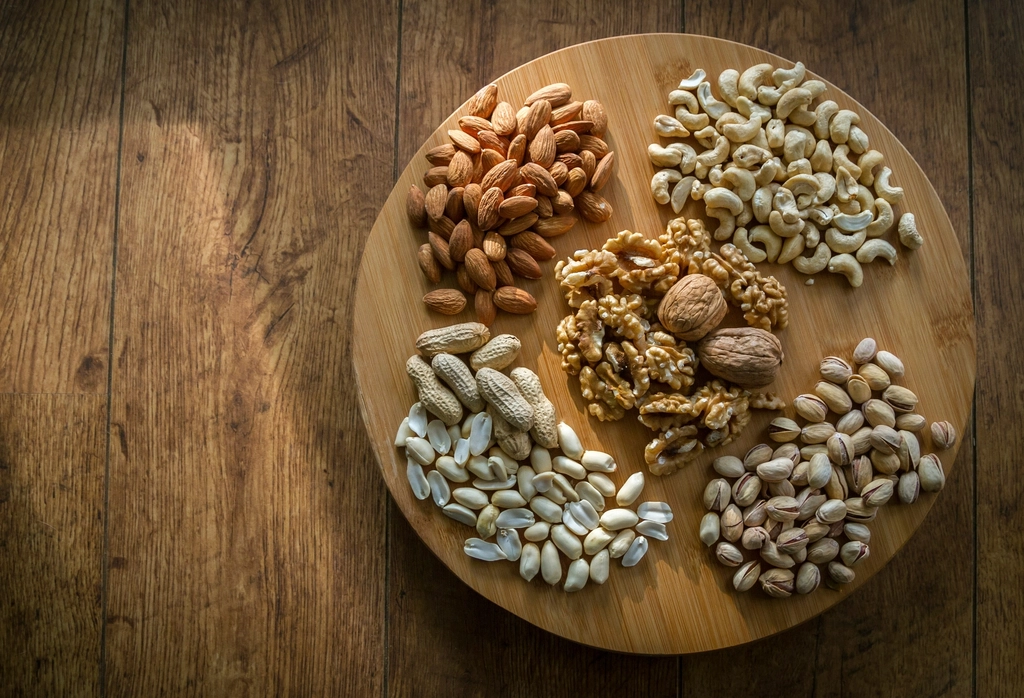
8. Leafy Greens (Spinach, Kale, Swiss Chard)
You’ve heard it before: eat your greens. But it turns out, leafy greens aren’t just good for your body—they’re amazing for your mind too.
Folate and Mood Regulation
Leafy greens are rich in folate (vitamin B9), which is essential for the production of neurotransmitters like serotonin and dopamine. Low folate levels have been linked to increased risk of depression and cognitive decline.
Other brain-friendly nutrients found in greens:
- Iron – Prevents fatigue and helps transport oxygen to the brain.
- Magnesium – Reduces stress and anxiety.
- Vitamin C – Aids in neurotransmitter synthesis and boosts immunity.
Spinach and Swiss chard also provide potassium. This mineral supports nerve function and hydration. Both are important for staying mentally sharp and emotionally stable.
Easy Ways to Add Greens
- Add a handful of spinach to scrambled eggs or smoothies.
- Make a kale salad with lemon and olive oil.
- Stir chopped Swiss chard into soups or pasta dishes.
Aiming for just a cup or two a day can deliver a significant mental lift. Your body will thank you as well.
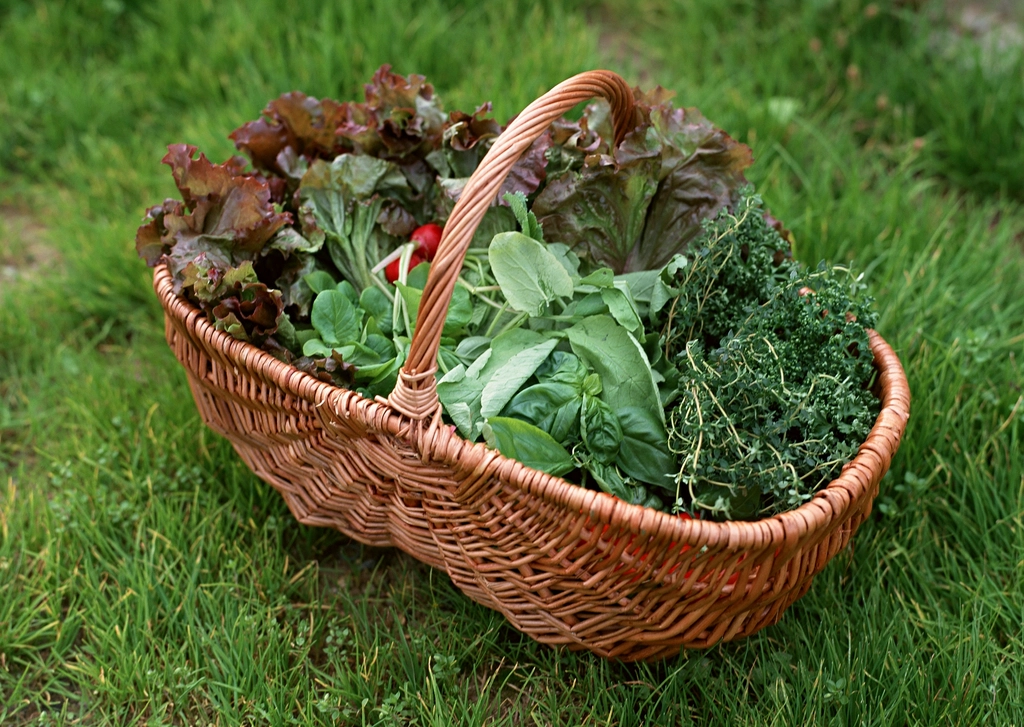
9. Coffee and Green Tea
That morning cup of coffee? It’s not just waking you up—it might also be lifting your mood. But don’t overlook green tea, either—it’s the chill cousin of coffee, giving a softer energy boost without the jitters.
Caffeine and Dopamine
Caffeine stimulates the central nervous system. It increases the release of neurotransmitters like dopamine and norepinephrine. This can enhance alertness and mood. A moderate intake has been linked to lower rates of depression.
The Power of Green Tea
Green tea contains L-theanine, an amino acid that promotes relaxation without drowsiness. It balances the stimulating effects of caffeine and can enhance focus and calm at the same time. Think of it as “zen in a cup.”
Both drinks are also rich in antioxidants, especially polyphenols, which help fight inflammation and support overall brain health.
Tips for Smart Sipping
- Limit yourself to 2–4 cups of coffee per day to avoid anxiety or sleep disruption.
- Swap your afternoon coffee for green tea for a lighter, smoother energy boost.
- Avoid loading them with sugar—opt for a splash of plant milk or cinnamon for flavor.
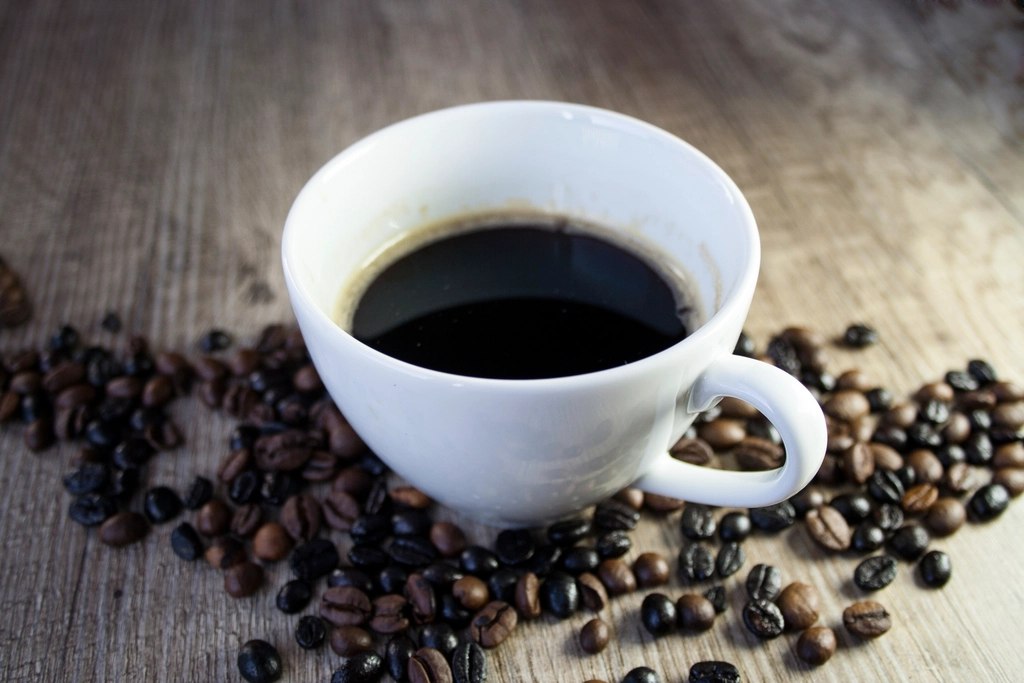
Bonus Tips: How to Add These Foods into Your Day
Alright, now you know what to eat—but how do you actually make these mood-boosters part of your daily life?
Start Your Day Right
- Breakfast: Oats with banana, berries, and walnuts
- Coffee with a splash of almond milk
Midday Mood Lifts
- Lunch: Grilled salmon with a spinach salad
- Snack: Greek yogurt with dark chocolate shavings
Evening Calm
- Dinner: Stir-fry with tofu, kale, and brown rice
- Tea time: A soothing cup of green tea
Meal Prep Makes a Difference
- Chop and store veggies ahead of time
- Portion out nuts/seeds for grab-and-go snacks
- Freeze smoothie packs with berries and greens
Consistency is key. The more often you eat these foods, the more you’ll feel the mental and emotional benefits.
Conclusion
It’s easy to overlook how much our food choices impact not just our physical health, but also our emotional well-being. But as we’ve seen, the link between what we eat and how we feel is strong. It is real and backed by science. Start by incorporating these 9 healthy, mood-boosting foods. Enjoy options like dark chocolate, bananas, berries, fatty fish, oats, and more. They can give you that emotional edge to handle life’s ups and downs with more resilience and energy.
No single food is a miracle cure. However, small changes in your daily meals can make a big difference over time. Think of your plate as part of your self-care toolkit. By nourishing your brain and body with the right foods, you’re setting yourself up for better focus. You can achieve greater calm. You will experience improved sleep and a generally sunnier outlook on life.
So, next time you’re feeling off, instead of reaching for junk food, turn to one of these natural mood boosters. They’ll not only make your tastebuds happy—they’ll help lift your spirits too.
FAQs
1. Can food really improve mental health?
Yes! While diet alone won’t replace therapy or medication when needed, it plays a crucial role in overall mental wellness. Foods rich in nutrients like omega-3s, magnesium, and antioxidants help balance neurotransmitters, reduce inflammation, and support brain function—all of which contribute to improved mood.
2. How long does it take to notice effects?
Some people notice a difference in just a few days—especially with improved energy and focus—while deeper emotional benefits may take a few weeks of consistent healthy eating. Everyone’s body is different, but building these foods into your regular meals creates lasting improvements over time.
3. Are supplements a good alternative?
Whole foods are always the best source of nutrients because they contain a blend of compounds that work together in ways supplements can’t always replicate. However, supplements can be helpful if you have a deficiency. It’s best to talk with a healthcare provider before starting any new supplement.
4. What’s the best mood-boosting breakfast?
A balanced breakfast might include oats topped with banana and berries, a few walnuts, and a cup of green tea. This combo gives you fiber, healthy fats, slow carbs, and antioxidants—all known to support a stable, energized mood throughout the morning.
5. Do children benefit from these foods too?
Absolutely! Kids’ brains and bodies thrive on nutritious food just like adults. Introducing these foods early helps develop healthy habits and may even improve focus, behavior, and emotional regulation. Just adjust portion sizes and preparation to match their needs and tastes.



